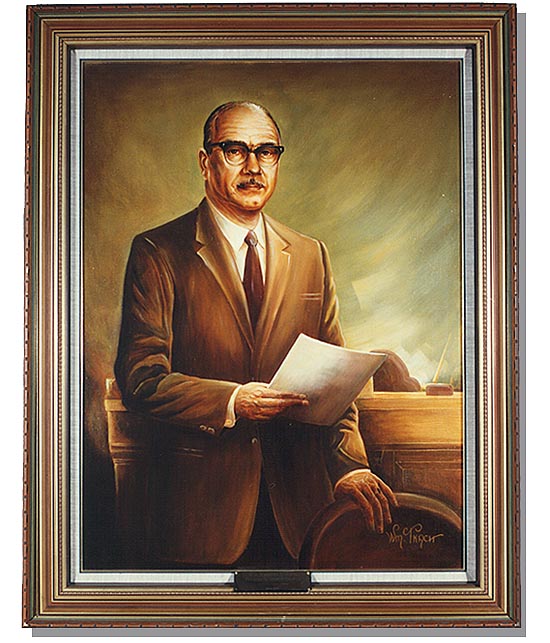- Woodrow Stanley Lloyd
Infobox Prime Minister
name = Woodrow Stanley Lloyd
honorific-suffix =

caption =
office1 = 8thPremier of Saskatchewan
term_start1 =November 7 1961
term_end1 =May 2 1964
predecessor1 =Tommy Douglas
successor1 =Ross Thatcher
office2 = MLA for Biggar
term_start2 = 1944
term_end2 = 1971
predecessor2 =John Allan Young (CCF)
successor2 =Elwood Lorrie Cowley (NDP)
office3 = Leader of the Opposition
term_start3 = 1965
term_end3 = 1970
predecessor3 =Ross Thatcher
successor3 =Allan Blakeney
party = NDP
birth_date =July 16 ,1913
birth_place = Webb, Saskatchewan
death_date =death date and age | 1972|04|07|1913|07|16
death_place =Seoul ,South Korea
party = CCF-NDP
spouse =
religion = |Woodrow Stanley Lloyd (
July 16 ,1913 —April 7 ,1972 ) was a Canadianpolitician who succeededTommy Douglas asPremier of the Province ofSaskatchewan . Douglas left provincial politics to become leader of the federalNew Democratic Party .Born in Webb, Saskatchewan on July 16, 1913. He was educated as a teacher in Moose Jaw and began teaching in 1933. He soon became active in the
Saskatchewan Teachers' Federation and held many positions in the organization including holding the office of president from 1941 to 1944.In 1944, Woodrow Lloyd was elected to the Saskatchewan Legislature as the
Co-operative Commonwealth Federation member in the constituency of Biggar, a seat he held until his retirement in 1971. Lloyd would become the youngest cabinet minister in Saskatchewan history, up to that point, when he was appointed to cabinet as Minister of Education by new Premier Tommy Douglas. Lloyd served as Minister of Education for the next sixteen years and oversaw the complete overhaul of the Saskatchewan education system. The most controversial measure he introduced was the amalgamation of Saskatchewan over 5,000 local school boards into 56 Larger School Units. The measure was instituted to create more equitably education opportunities for students across the province by providing students greater opportunity to receive instruction by specialized teachers and access to increased education resources. The move however was opposed by some in rural Saskatchewan who resented the loss of local control over schools, as the move to LSUs resulted in the closure of nearly all rural one-room schools over the next two decades.After the 1960 election Douglas appointed Lloyd the Provincial Treasurer. In 1961 Douglas resigned as Premier to assume the leadership of the newly-formed federal
New Democratic Party (NDP). Lloyd was elected leader of what was now called the Saskatchewan CCF-NDP after he easily defeatedOlaf Turnbull in the leadership contest.As Premier, Lloyd was responsible for implementing the universal health care plan that Douglas had introduced. Lloyd's government had to cope with the
Saskatchewan Doctors' Strike of July 1962, in which the province's physicians withdrew service in an attempt to defeat the Medicare initiative.Lloyd and his government refused to back down on the concept of a universal public health care system, and persuaded the doctors to settle after 23 days.
While Medicare was implemented, the political turmoil did lasting damage to the Lloyd government, contributing to its defeat at the hands of
Ross Thatcher 'sSaskatchewan Liberal Party in the 1964 provincial election. Medicare was later extended to all provinces and territories in Canada as a result of the Saskatchewan experiment.After his government’s defeat Lloyd became Leader of the Opposition a post he held until 1970 when
Allan Blakeney was elected leader of the Saskatchewan NDP. After retirement from the Saskatchewan Legislature in 1971, Lloyd was appointed as representative for theUnited Nations Development Program in South Korea. However just months after assuming this post, he died suddenly inSeoul ,South Korea .Further reading
C.B. Koester ed. The Measure of the Man: Selected Speeches of Woodrow Stanley Lloyd. Saskatoon: Western Producer Prairie Books, 1976.
Dianne Norton. "Woodrow S. Lloyd" in Gordon L. Barnhart ed. Saskatchewan Premiers of the Twentieth Century. Regina: Canadian Plains Research Center, 2004.
Brett Quiring. "The Social and Political Philosophy of Woodrow S. Lloyd" in Saskatchewan History Vol. 56 No. 1 (Spring 2004) pgs 5-20.
Wikimedia Foundation. 2010.
